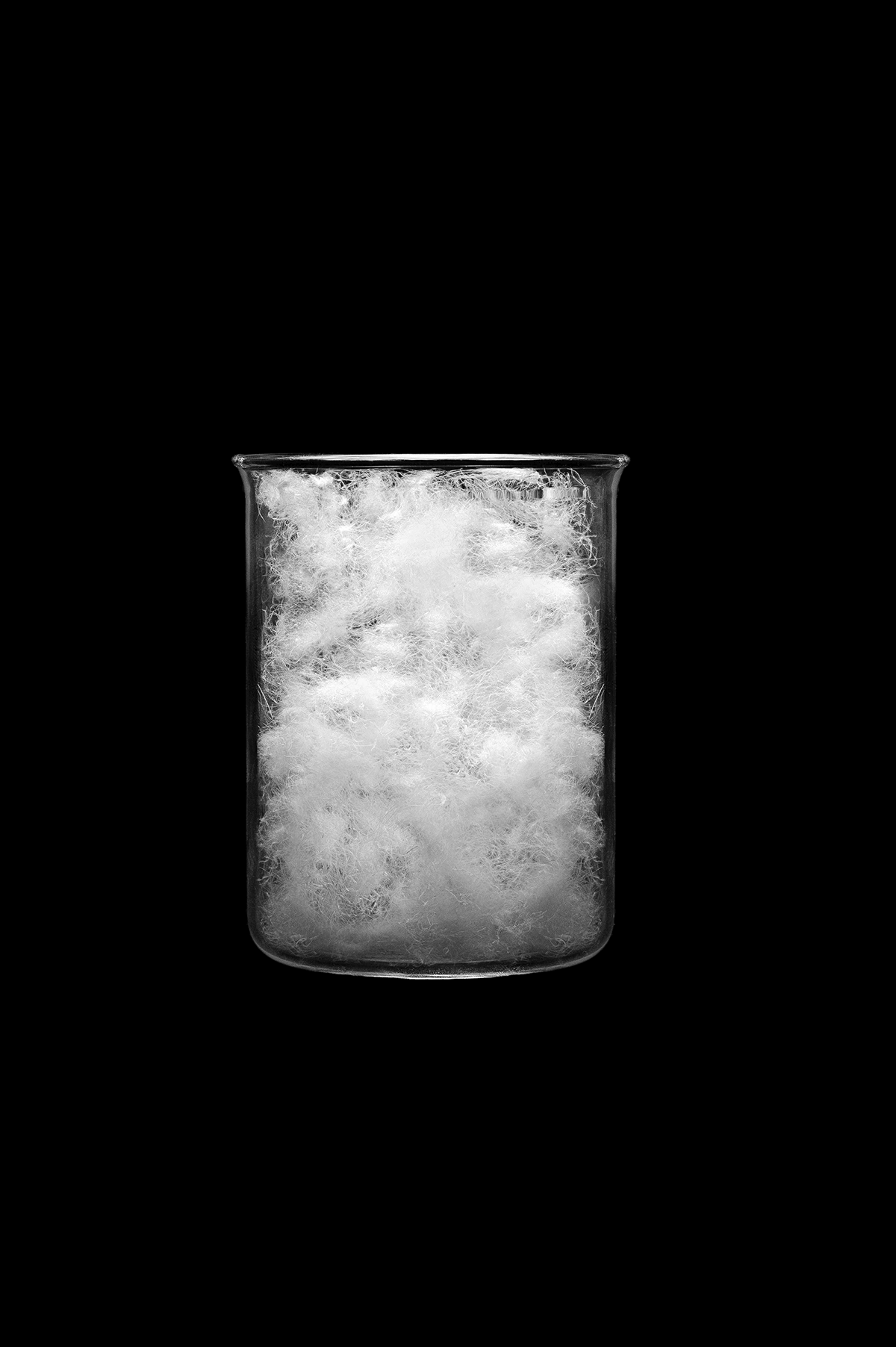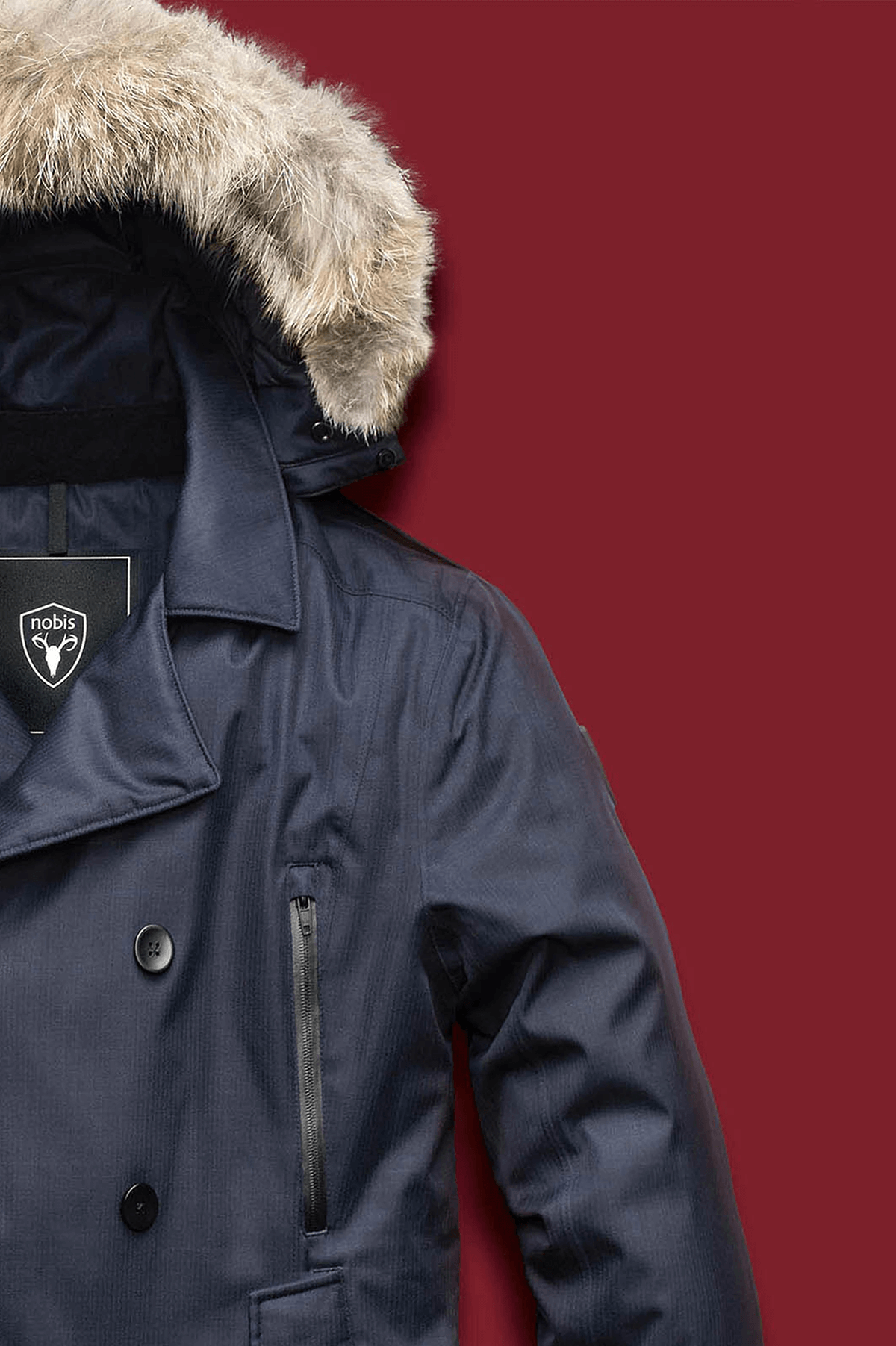Our responsible sourcing practices focus on eliminating chemicals of concern and sourcing preferred fiber materials as defined by Textile Exchange. We require all our primary fabrications including trims to be bluesign® approved or Standard100 by OEKO-TEX® certified. Our preferred materials include GRS certified recycled fibers, responsibly sourced virgin wool, cotton, and manmade cellulosic fibers, and
responsibly sourced down.

DOWN PRACTICES
Why down?
Down is nature’s best insulator and generally offers better warmth than synthetic insulation of the same weight. Down maintains its loft and recovers from compression better than synthetic insulations and therefore helps products maintain their warmth and value through multiple seasons.
Nobis down is 100% Canadian origin white duck down. Down is a by-product of the food industry, and Canadian standards for cleanliness, animal welfare, practice and care, and government oversight are amongst the highest in the world. All Canadian farms are provincially and federally inspected facilities and monitored by the Provincial/Canadian Food Inspection Agency. On average, Canadian ducks are raised longer than in Asia, resulting in higher quality down product. Mature birds produce larger down clusters, which contribute to a higher fill power.
To maintain the highest product quality and integrity, we work with third-party qualified down suppliers. Our down products are procured from CANADIAN DOWN STANDARD qualified supplier.
SAFE AND SUSTAINABLE BY DESIGN
As a natural product, down has lower environmental impact than synthetic petroleum-based insulations. Additionally, down is biodegradable and processed without hazardous chemicals.
Nobis down products have strict quality and cleanliness standards, and the products go through multiple wash cycles and high temperature drying to ensure the products are fully clean and sterilized. Each Nobis lot is rigorously tested for quality and cleanliness, exceeding international hypoallergenic standards

FUR PRACTICES
Our coyote fur is North American wild fur. These wild furbearing populations are abundant in Canada and the United States and are actively managed by licensed trappers to ensure the populations remain healthy and balanced according to annual quotas set by local wildlife management and conservation authorities. Fur trade supports the livelihood of hunters and trappers, who often come from rural and indigenous communities. In some families, trapping has been the way of life for generations.
Trapping in Canada and the United States is highly regulated and is strictly controlled by the regulations set forth by governments, states, provinces, and territories, complying with the Agreement on International Humane Trapping Standards (AIHTS) and the U.S. Best Management Practices. Whether the fur trade exists or not, trapping is practiced in order to manage the populations and protect the conservation of other wildlife.
Real fur offers exceptionally good protection from the elements - far superior to artificial fur, protecting us from freezing cold, wind, and snow. As a natural product, fur is 100% biodegradable and to ensure minimum impact on the environment we do not dye our furs.
WE CREATE THE FINEST OUTERWEAR, ALWAYS CAREFULLY CONSIDERING OUR MATERIALS, PRACTICES, AND FACILITIES. OUR PERFORMANCE TEXTILES HAVE DISTINCT ETHICAL PROPERTIES. WE USE PREMIUM CANADIAN ORIGIN WHITE DUCK DOWN, ETHICALLY SOURCED AND PROCESSED.
- ROBIN YATES, CO-FOUNDER AND VICE PRESIDENT
References
1. Severinghaus, S., Bernstein, P., & Hamilton M. (2019, July 1). Long Trail Sustainability. Life Cycle Assessment of Down Fill Material – Final Report. Understanding the environmental impacts of down fill material and how down fill material compares to polyester fill material. Available online: https://idfb.net/about-down-feather

